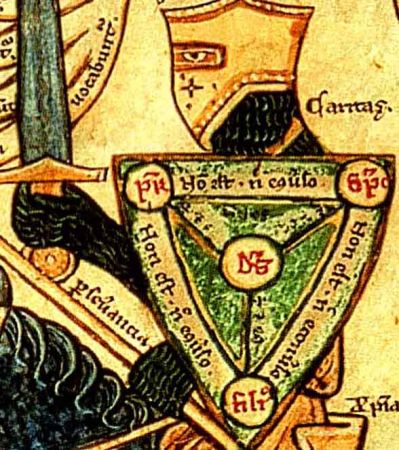Anti-THAC0 Attack Matrices
The Path of THAC0
Before it was D&D, it was called Braunstein, and was a miniature wargame (like Warhammer) but with special focus on individual hero units who gained special equipment and levels of experience as the war campaign progressed.
In these days, the word "dice" meant normal, cubical six-sided d6 dice. So when Dave Arneson, the first DM, needed a mechanic to resolve hand-to-hand single solider combat, he needed a way to compactify all of the complicated reality of damage done by a man with a heavy piece of metal in his hand trying to strike another man bound in metal plates, and he had to use six-sided dice to do it.





